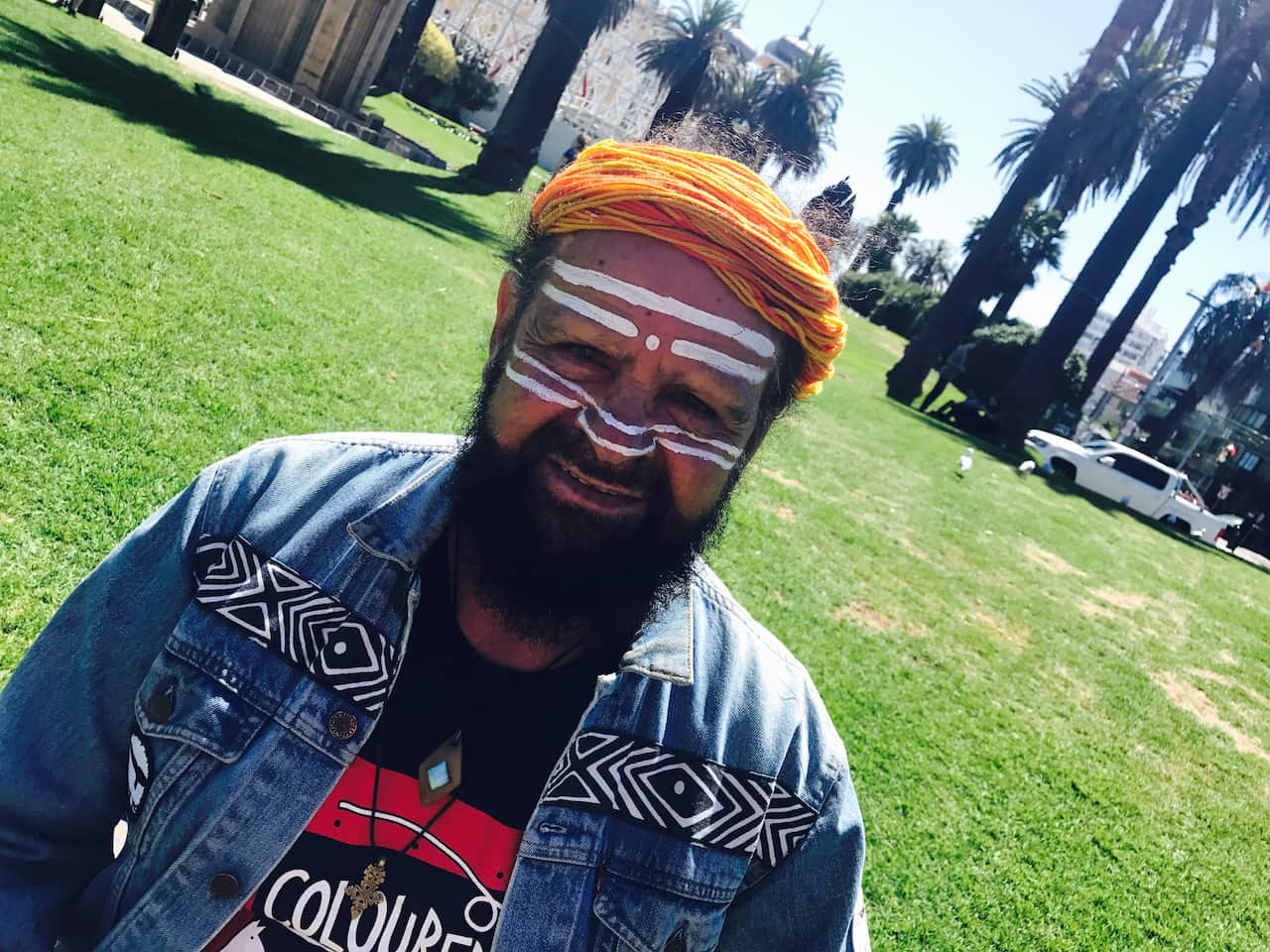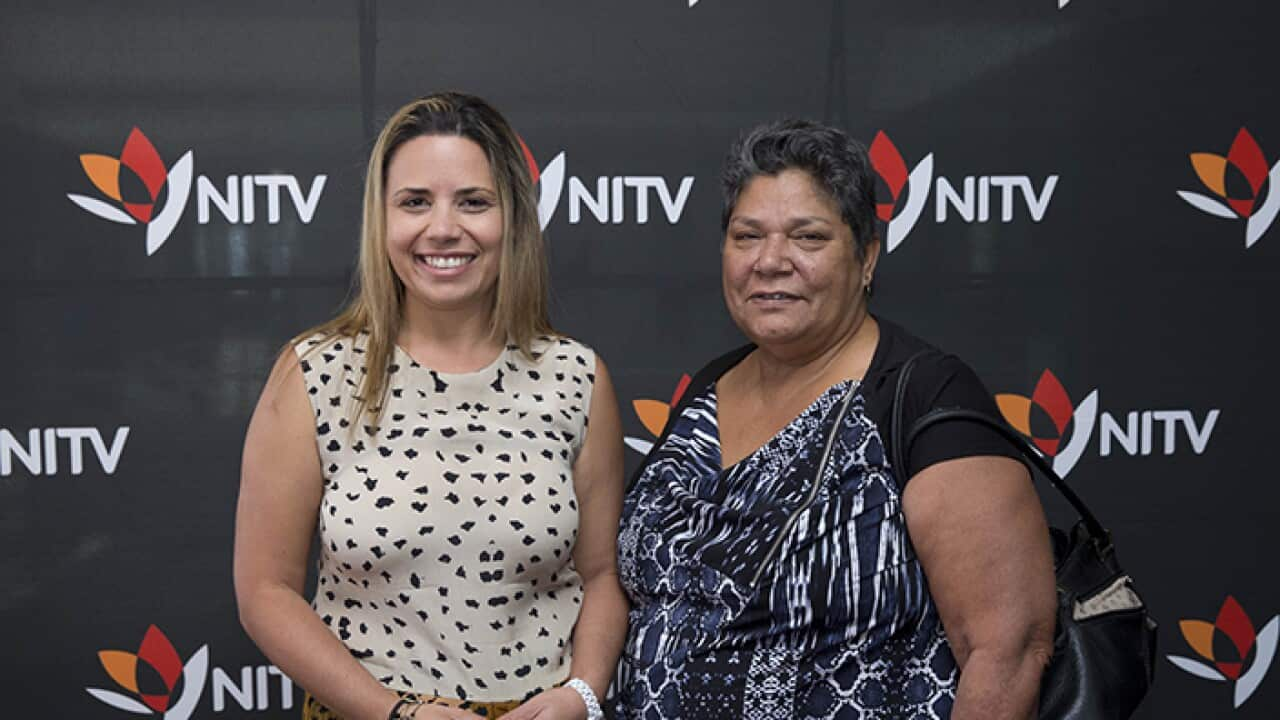To celebrate the survival of our culture, NITV has been capturing some of our most beloved artists singing their unofficial anthems in unique and iconic locations across Australia.
Christine Anu - My Island Home
Beginning her performing life as a dancer and back up singer, Christine Anu, a Torres Strait Islander woman (Saibai) captured the heart of the nation with the release of her debut album, Stylin Up, which went platinum and included the recording of the iconic song 'My Island Home'.
Written by Neil Murray, and originally performed by The Warumpi Band in 1987 for their second album Go Bush, 'My Island Home' is a song that has uniformly resonated with wider Australia ever since, as many interpret the song to be about Australia as an island nation. In fact, the song was originally , the homeplace of Warumpi's lead singer . Anu's recording of the song in 1995 remains a popular version and picked up 'Song of the Year' at the 1995 APRA Awards. It was also listed in of all time in 2001.
Christine performed My Island Home at Circular Quay on Sydney's iconic harbour fringe.
The Last Kinection - I Still Call Australia Home
The Last Kinection are a top hip hop act, formed in 2006 and made up of brother and sister, Joel (Weno) and Naomi (Nay) Wenitong, both descendants from Kabi Kabi mob from South East Queensland, and DJ Jaytee Hazard.
The song choice was an easy one with the group first catching attention with their rendition of Peter Allen's expat anthem 'I Still Call Australia Home'. However, the intro by Nay let's us know this is not the traditional anthem as we know it - They invaded, degraded, and polluted our land /Stole all the children and raped our women / But no matter how long or how far I roam / I still call Australia home
I Still Call Australia Home by The Last Kinection was performed on the iconic Sydney Harbour at Circular Quay.
Shane Howard - Solid Rock
Shane Howard grew up in Dennington in coastal Victoria, part of a large Irish/Catholic family who all played and performed music. Whilst in college, Howard formed a band which would later come to be known as Goanna. The band landed many gigs and after a good run of touring, on Doctor's advice, Howard took a months hiatus which led him to Uluru. Of his experience there with the Aboriginal community, Howard said that he was 'marked for all time', and out of this life changing event came the inspiration for 'Solid Rock', the first popular mainstream song to talk about Aboriginal land rights. The track remains one of our most loved and recognisable rock songs and the first with extensive use of didgeridoo, played by Billy Inda from No Fixed Address.
Howard performed Solid Rock at Acland Plaza in St Kilda, Melbourne

Shane Howard performs 'Solid Rock' at Acland Plaza in St Kilda Source: NITV
Dan Sultan - The Drover
One of Australia's most distinctive rock vocalist/guitarist, Sultan grew up in Fitzroy the son of an Irish lawyer and Arrente/Gurindji mother from Yuendemu, 300 km north west of Alice Springs. A performer from a young age, Sultan was given a guitar at the age of 4, wrote his first song at 10 and first began performing in local pubs in Fitzroy.
'The Drover' is an original song written by Sultan in honour of Aboriginal land rights activist, Vincent Lingiari AM, a Gurindji man who led a walk-off with his fellow indigenous employees of Wave Hill cattle station as a protest against the work and conditions. The Wave Hill walk off lasted nine years, with a groundswell of support growing and eventually led to the Aboriginal Land Rights (Northern Territory) Act 1976.
Sultan performed The Drover at Acland Plaza in St Kilda, Melbourne

Dan Sultan performs 'The Drover' at Acland Plaza in St Kilda Source: NITV
Bunna Lawrie - Black Boy
Bunna Lawrie is lead singer/songwriter of which he founded 1977 on the Koonibba Mission in South Australia. A Mirning man and respected elder, 2017 marks 40 years of continual touring of Lawrie and Coloured Stone who are well known for their use of rock and reggae mixed with traditional instruments and sounds such as clap sticks, bundawuthada (gong stone), didg and language. A much loved anthem, Lawrie's song 'Black Boy' was recorded in 1984 and became a success, even gaining a number 1 chart position in Fiji and selling over 100,000 copies.

Bunna Lawrie performed Black Boy at O'Donnell Gardens in St Kilda Source: NITV
Bart Willoughby - We Have Survived / Aboriginal Woman
A founding member of “No Fixed Address” in the early 80’s and “Mixed Relations” in the 90’s, Willoughby is a Kuthatha/Mirning man of the Pitjantjatjara who grew up at Koonibba Aboriginal Mission near Ceduna on the South Australian edge of the Nullarbor Plain. Most notable for pioneering the fusion of reggae with Indigenous influences, Willoughby has produced several unofficial Aboriginal anthems including both 'We Have Survived' and 'Aboriginal Woman'.
'We Have Survived' was written when Willoughby was 18, appeared on the No Fixed Address album From My Eyes and has been included in the Black Arm Band's production Murundak. This is one of our most enduring anthems, with it's message of resilience.
'Aboriginal Woman' is an homage to the resilience, beauty and strength of Aboriginal woman, with Willoughby referencing that strength being the backbone of our culture.
Bart Willoughby performed at O'Donnell Gardens, St Kilda, Melbourne

Bart Willoughby performs 'We Have Survived' & 'Aboriginal Woman' at O'Donnell Gardens in St Kilda Source: NITV
Archie Roach - Down City Streets
Archibald William "Archie" Roach AM, was born in Mooroopna, Central Victoria 1956 and his family, along with the rest of the area's Indigenous population, were re-housed on Rumbalara mission. As young children, Roach, along with his sisters became part of the stolen generations when they were forcibly removed from their family by the government and placed in orphanages. Roach has expressed honestly his life experiences and struggles throughout his musical career and has won a host of awards, including a Human Rights Award for 'Took The Children Away', a moving song about the stolen generations that touched hearts across the nation. As a 16 year old living on the streets, Roach met his life partner, Ruby Hunter, who would also become a much loved singer/songwriter. Hunter penned the autobiographical 'Down City Streets' which Roach performed and recorded for his debut album Charcoal Lane. The song remains a favourite among fans and has recently been re-recorded by Naaguja/Yamatji woman Emma Donovan featuring Archie Roach, exposing the song to new audiences.
Archie Roach performed Down City Streets at Monarch Lane in St Kilda, Melbourne.

Archie Roach performs 'Down City Streets' in Monarch Lane, St Kilda for NITV's Unofficial Anthems series Source: NITV News
Joe Geia - Yil Lull
Geia is a renowned singer/songwriter and guitarist of renown from North Queensland. His contributions to contemporary Indigenous music are widely noted and he first came to prominence as part of the influential band No Fixed Address and as a founding member of the Black Arm Band. 'Yil Lull' was written by Geia in the early 70's in dedication to the new Aboriginal flag, and was part of his live performance for many years before being formally recorded in 1988. Meaning 'sing' in the Guugu Yimithirr language, Yil Lull references the colours of the Aboriginal flag, expresses a pride in identity and culture and is often cited as the Aboriginal anthem. 'Yil Lull' has been performed by many other artists including Paul Kelly, Archie Roach and The Tiddas.
Joe Geia performed Yil Lull at Boundary Street in the West End.
Troy & Dean Brady - Blackfella/Whitefella
Father and son Troy and Dean Brady are Western Gugu Yalanji from Northern Queensland. Troy has been performing for over two decades with his family and as part of popular soul group Aim for More and Banawurun. Dean, shot to fame when he was part of TV talent quest show, Australia's Got Talent in 2013. 'Blackfella/Whitefella' is a hugely popular and often covered country rock song written by Neil Murray and George Rrurrambu for their group the Warumpi Band, appearing on their 1985 album, Big Name, No Blankets. Murray has stated that the inspiration for the song came from his time working in Papunya in the Northern Territory in the early1980's, where he found that there was a cohesiveness and inclusiveness in the community. After talking about the song idea with his bandmates they suggested using the term "yellafella"sometimes used to describe those of mixed race, to give the song a universal appeal.
Rrawun Maymurru & Band - Treaty
Lead singer of East Arnhem land rock/reggae group East Journey, Yolgnu man Maymuru is the grandson of pioneering group frontman of Yothu Yindi, the late Dr Yunupingu. In the tradition of his family, Maymuru along with his band have continued to share their culture through music and storytelling. Maymuru he still feels the spirit of his grandfather when he is making music and still thinks of him as inspiration. One of the most popular songs to ever be released by a predominantly Aboriginal band, 'Treaty' was first released in 1991 and peaked on the ARIA charts at number 11, and was the first song containing Aboriginal language - Yolngu-Matha- to. Broaching the topic of the desire of many for a treaty with the Australian Government and Aboriginal Australia, in 2004, Dr Yunupingu stated that the song was inspired by this movement and the visit of then PM to the Northern Territory, "Bob Hawke visited the Territory. He went to this gathering in Barunga. And this is where he made a statement that there shall be a treaty between black and white Australia. Sitting around the camp fire, trying to work out a chord to the guitar, and around that camp fire, I said, "Well, I heard it on the radio. And I saw it on the television." That should be a catchphrase. And that's where 'Treaty' was born."
'Treaty' was performed by Rrawun Maymuru and band at Port Douglas markets in Nth Queensland

Rrawun Maymurru & Band in North Queensland Source: NITV
Rochelle Pitt Watson - Black to Reality
Watson began her musical journey at a young age, performing in the churches and choirs of Far North Queensland. She has said that she was inspired and influenced by the gospel singing of her Aunts and Uncles and during a break in her nursing studies in her early 20's decided to start singing professionally. Her first EP 'Black to Reality' released i 1999 a 'body of work full of uplifting and inspirational songs for her first nation people'. The title single is one of a couple of unoffficial anthems, the other being 'Too Deadly My Sister'. 'Black to Reality' uses a blend of traditional didgeridoo and driving rock/soul rhythm and discusses the desire to reclaim Aboriginal identity after the loss of culture, language and tradition through government policies and the realities of modern life in Australia. NITV's Anthem Sessions will be broadcast on Channel 34 throughout January 26. .
NITV's Anthem Sessions will be broadcast on Channel 34 throughout January 26. .

Rochelle Pitt Watson in North Queensland Source: NITV
Discover more about Indigenous Australia with NITV's , an interactive line-up of truth, tradition and expression.




